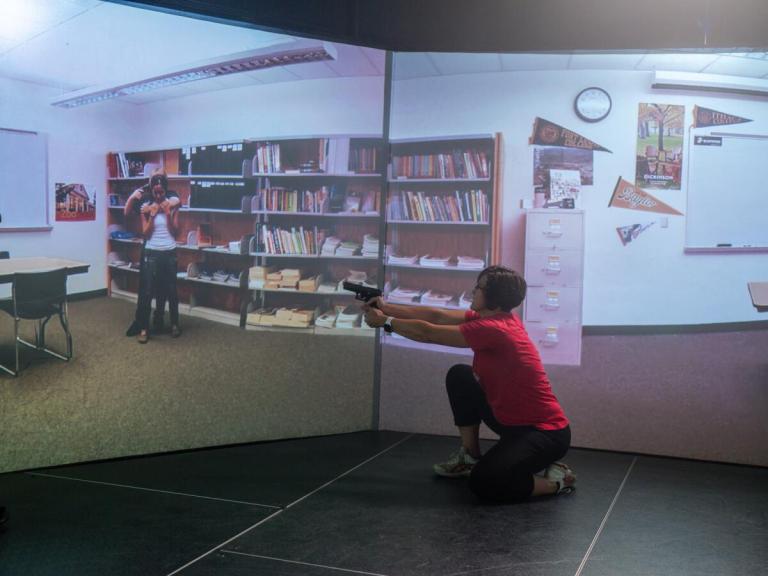
13 Little-Known Secrets Of Great Conversationalists

1. Reading everything
One of the most important aspects of being a great conversationalist is reading. Reading current events, reading fun things, reading dense things, reading things that expand your views on certain subjects, reading things you like and agree with, and reading things you don’t agree with. The latter is most important because that is fundamental to understanding different perspectives of the world. You learn nothing new from reading things you already know about or agree with. But all reading increases knowledge and improves vocabulary.
2. Having a diverse group of friends
A lot of people think that having at least one friend from every possible racial/ethnic background makes their friend group “diverse.” But that’s not exactly true. Diversity is largely a function of experience, which makes race and ethnicity important. But it doesn’t account for the diversity that socio-economic class, upbringing, nationality, political perspectives, etc. provide. All in all, if you have friends who look like you, grew up like you, and think like you – you’re probably doing it wrong.
3. Being acquainted with different kinds of intelligence
Contrary to popular belief, there aren’t only a few, narrow-minded ways to be intelligent. Intelligence is a varied, encompassing “thing.” Great conversationalists know that it’s important to not only be aware of several intelligences, but to know different people who exemplify as many as possible (and to learn from them). That goes from everything from the different kinds of book smart you can be, to street smarts, to predicting human behavior, to body intelligence.
4. Asking meaningful questions
The art of conversation is dependent on good questions, good open-ended questions that enrich the topic of discussion. The truth is asking good questions is a skill in itself, and one that can at times seem quite rare. But meaningful questions try to dig deeper than just the superficial, and are often purposeful in nature. It’s not enough to simply be inquisitive if you want to be a good conversationalist, you have to show and encourage critical thought, even in your questions. Yes, this can apply to “light” and “fun” subject matters too.
5. Listening attentively
Listening is one of the most important things about conversation. And we can all get better at it. Most people listen with the intention to respond, not to listen. But there is value in the actual listening process. This is often where great conversationalists separate themselves. When you listen to people attentively, you are able to decipher what they actually mean. And that is important. Always focus on the exact message they are trying to convey.
6. Debating with the intent to learn (not to win)
You’re going to have a lot of arguments and disagreements in your life. At the expense of your ego, your aim is going to be to win these disagreements most of the time. But what if you thought of any disagreement that is worth your time and mental faculties, as an opportunity to learn? That’s something all great conversationalists know. They are aware that people have different perspectives and may even be able to broaden their horizon to think about something in a nuanced way.
7. Appreciating the silence
A lot of people are terrified of awkward silences. Great conversationalists know better. The silence is something that is supposed to create comfort. Not every moment needs to be filled with words in conversation. Great conversationalists welcome silence as a way to take a deep breath, retain information, collect thoughts, and transition. Outside of conversation, all great conversationalists enjoy silence as a means of reflection. And often appreciate silence after a meaningful interaction with a person, situation, or a book.
8. Always having a writing device available
One trick almost all great conversationalists have is to make little notes whenever they can – either about ideas they are interested in exploring, or about things they learned in conversation. Writing things as they come to you makes you more likely to remember them. And writing ideas is always good for brainstorming the way you think about things.
9. Following-up on new knowledge
In connection with always writing things down, another thing that separates people who are good at the art of conversation, is they always want to know a little more about something. For them, the next conversation about that thing should always be more enriching than the last. Every time they learn about something, they find someone who is more knowledgeable than them that they can learn from. And they get lost in many a Google search trying to consume as much information as possible.
10. Observing situations as a whole
Great conversationalist know how to pay attention to detail, but they also know that details should never come at the expense of the big picture. Good conversationalists love to observe people and the world around them. But they observe situations as a whole because they believe that the whole should always be greater than the sum of its parts. And they apply these to their knowledge areas as well as the people they choose to converse with.
11. Appreciating context
That context always matters is the hallmark of interesting conversations. And all good conversationalists know this. They not only find context vital to the art of connecting with people about particular subjects, they ensure that context forms the basis of conversation. Because without context, it is difficult to understand all the necessary facets that matter. And without knowing the context of those they converse with, they know that conversation is made more difficult.
12. Explaining with relatable examples
One of the best things all good conversationalists know is that people understand things better when you speak their language. This can be taken both literally and figuratively. Understanding what other people are interested in, and their perspectives is the key to coming up with examples that they will be able to identify with. Oftentimes, people explain things with examples they understand. But try for the opposite and you’ll find that people connect with you better.
13. Relentless curiosity
Last but not least, in order to be a good conversationalist, you need to be relentlessly curious. Yes, it may seem like people are boring and everything under the sun has been done. But really, everyone has a story and the good conversationalist is genuinely interested in hearing that story. Great conversationalists know that everyone has something to teach them. ![]()











